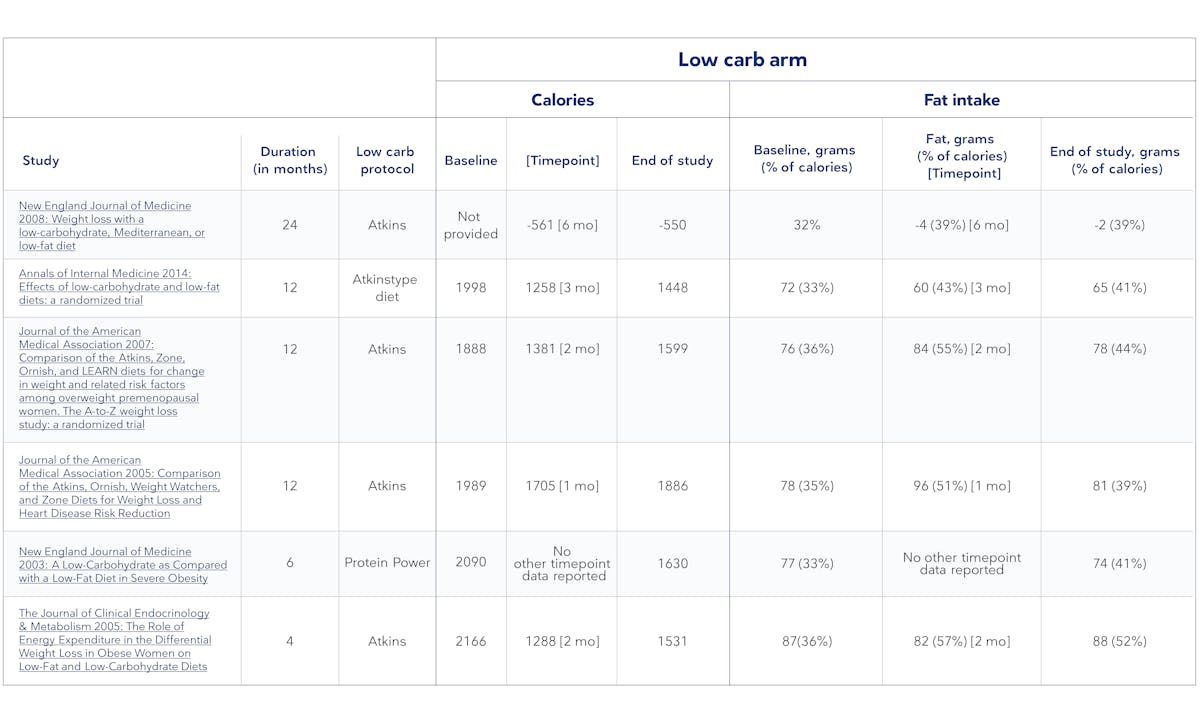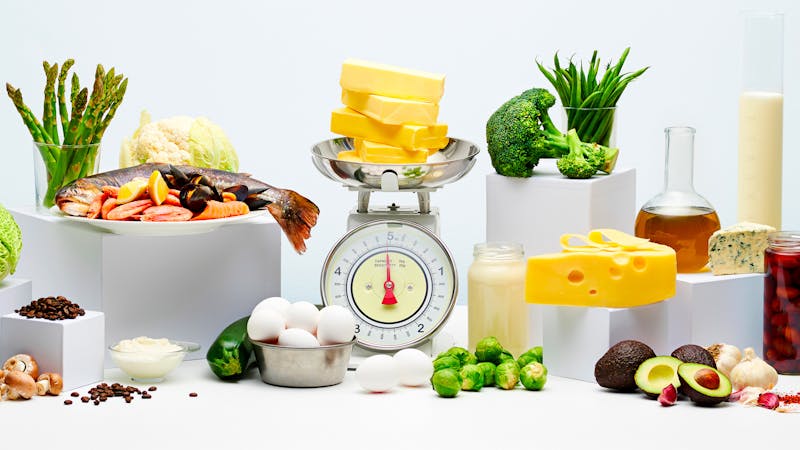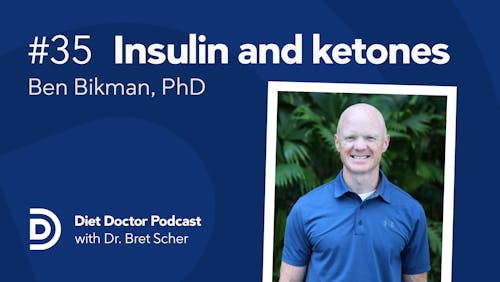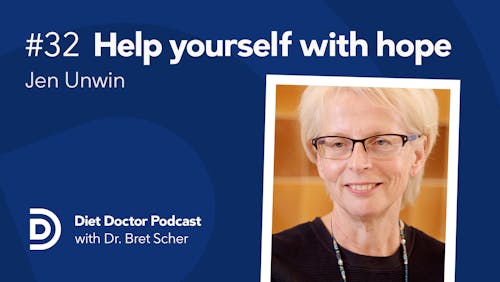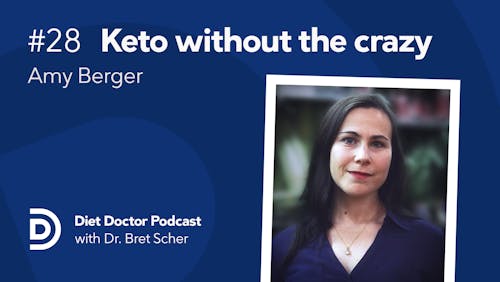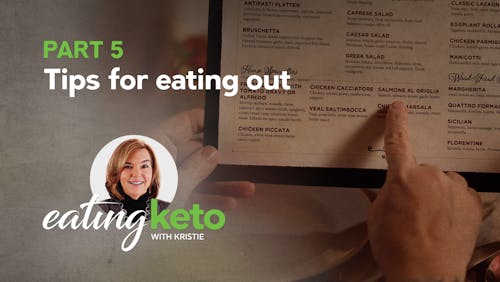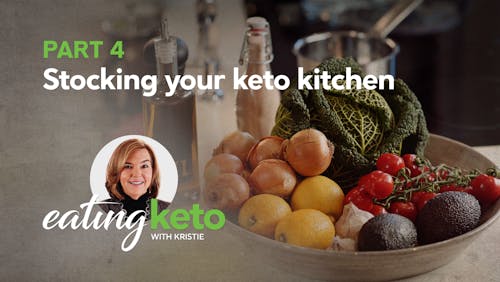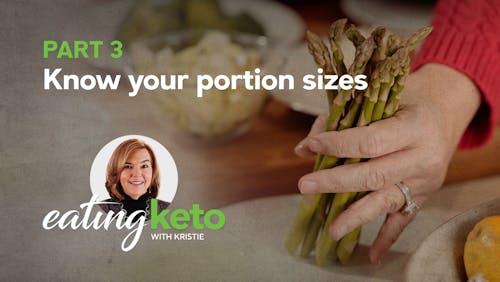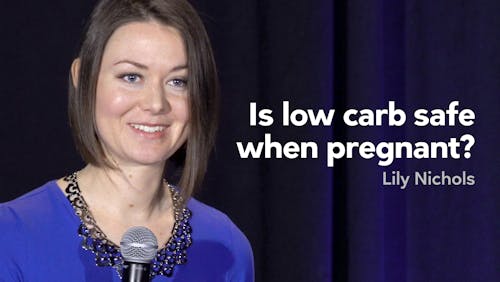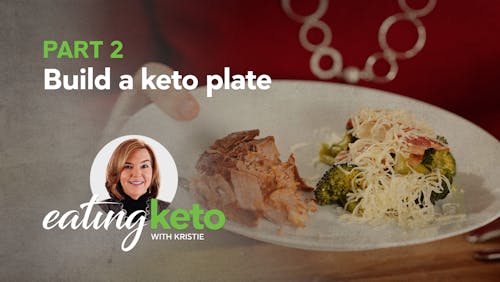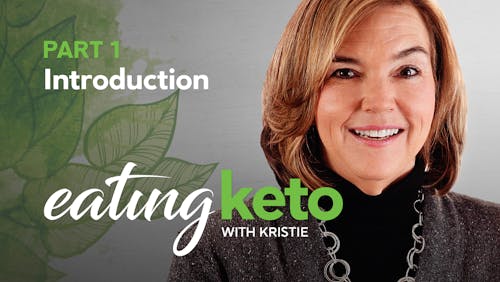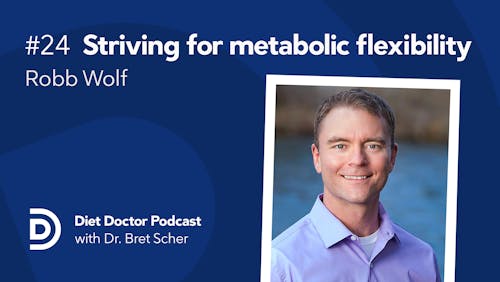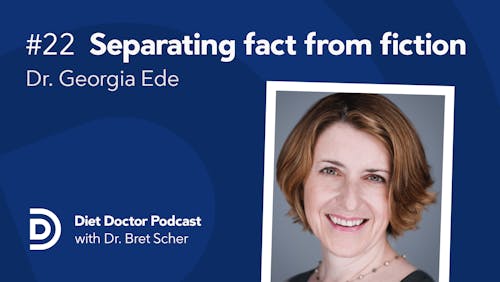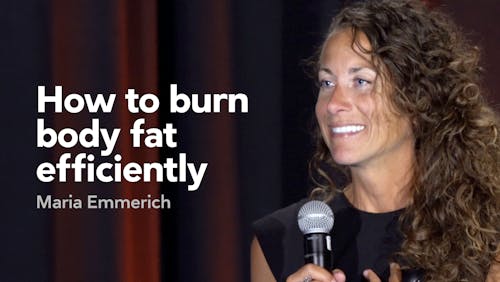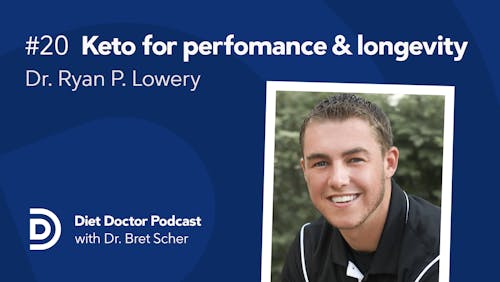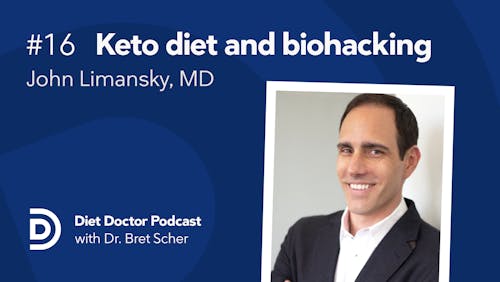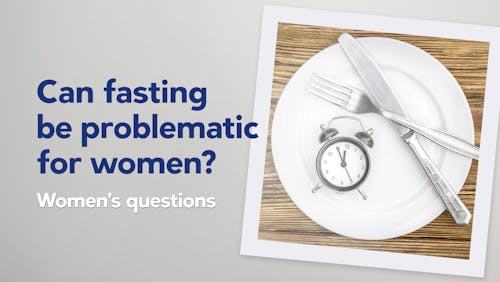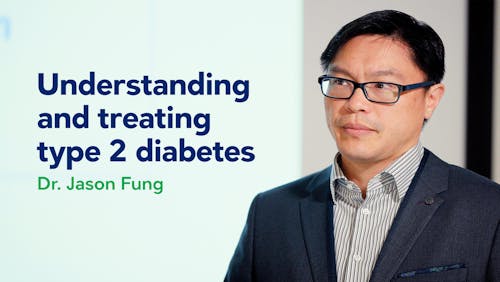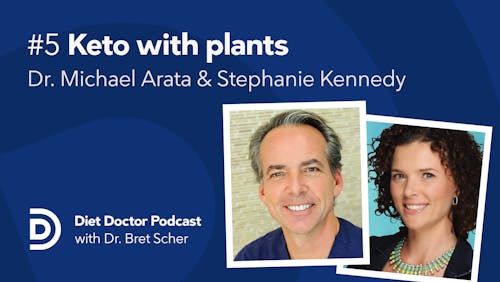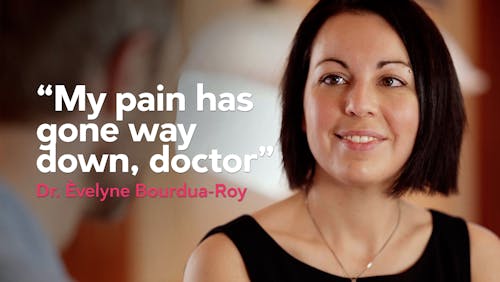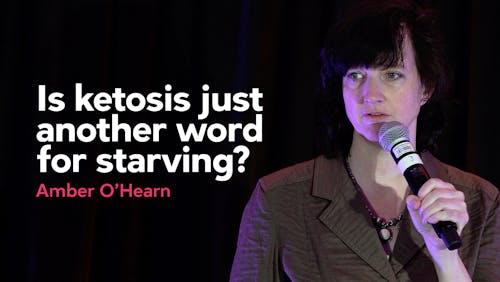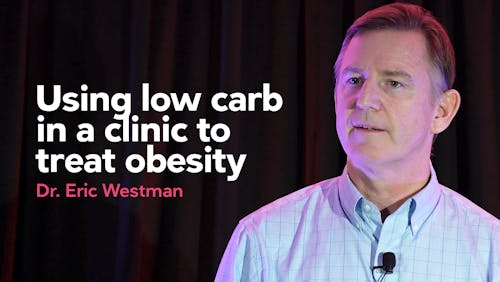Debunking keto myths about fat and weight loss
One of the key features of a low-carbohydrate, ketogenic diet is its approach to fat. Those getting started with a keto diet often wonder about “how to increase fat” or “what are high-fat snacks” — anything to make sure they are getting “enough” fat in their keto diet.The role that fat plays in a keto diet is often misunderstood, especially when it comes to weight loss. Knowing what fat can — and can’t — do to help you lose weight and improve your health will help you make the best choices for success.
This guide addresses four of the myths surrounding dietary fat and keto diets.
Jump to myths:
- Myth 1: You eat lots more fat on keto
- Myth 2: Eating fat burns body fat
- Myth 3: Fat is best for feeling full
- Myth 4: If carbs are kept low, fat is a “free” food

Key takeaways
Eating fewer carbs, not more fat, is what allows you to lose body fat.Learn more
Calorie for calorie, protein and fiber inhibit appetite more than fat.
Learn more
Even on keto, too much added fat can increase insulin resistance and cause weight gain.
Learn more
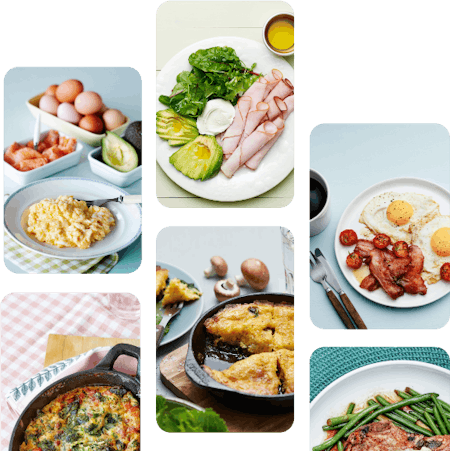
Myth 1: You eat way more fat on a keto diet
Many of the misconceptions around keto diets start here. People often think that, when eating a keto diet, they are eating a lot more fat than they were before. Although we can’t say what happens for any given individual “in real life,” there’s little evidence of this from clinical trials.
The first problem is, there are very few clinical trials that use adherence to “keto macros” or an emphasis on adding fat to the diet as the educational protocol for participants.
The most well-known and well-regarded clinical trials, the ones we point to as evidence that dramatically reducing carbohydrates improves weight loss, are low-carb trials, not “keto” ones.
However, absolute fat intake does not go up by much, if at all. In the study with the highest increase in fat intake, the average amount of increase was 18 grams, the equivalent of a tablespoon and a half of butter. In some studies, total fat intake decreases, although in most, it remains remarkably stable.
As previously stated, there are currently few studies that use a “keto macro” protocol to educate participants and the existing low-carb clinical trials show little (if any) increase in total fat. So, there isn’t evidence to suggest that adhering to “keto macros” or adding significant amounts of fat to your diet is better for weight loss than following an Atkins-style, low-carb diet. These head-to-head studies have simply not been done.
If following “keto macros” has worked well for you, congratulations! Keep doing what you are doing. Purposefully adding fat calories can work wonders for weight loss and have other health benefits for many people.
If it hasn’t worked well for you, a focus on protein-rich, low-carb foods (which naturally contain ample amounts of fat) and high-fiber veggies — an approach similar to the protocols used in the studies mentioned above — could help you reach your health goals.
Our higher protein recipes reduce carbs, increase protein, and add just enough fat to make each bite delicious.

Myth 2: Eating fat causes you to burn more body fat
With keto, a common misconception is that you have to eat fat in order to burn body fat. But on closer inspection, this may not be the case. Those of us who have been on very-low-calorie diets know that you can often lose body fat while eating very little fat. It’s just often not an enjoyable or sustainable way to live.2
Much of the confusion around this myth comes from not recognizing the difference between dietary fat (the fat you eat) and body fat (the fat you carry around under your skin and around your organs). If you are trying to lose weight or improve insulin resistance, your goal is to access body fat and use it for energy, not just to burn the calories you’ve recently consumed.
An important step that allows you to burn body fat is lowering insulin levels. Insulin is a hormone that tells your body to keep stored fat locked away, so getting insulin levels down can really help with fat burning.3
Dietary fat alone has very little effect on insulin levels in the short term.4 And, on its own, adding fat to your diet does not lower insulin levels.5 To lower insulin levels, you need to eat in a way that reduces calories or carbs — or, perhaps most effectively for some, both.
Carbs, calories, and insulin
One way to access body fat and use it for energy is to reduce total calories well below daily energy needs. This often — but not always — results in lower insulin levels.6
However, for some people, reducing calories across all macronutrients is not enough. In this case, it’s possible that a low-calorie diet with too many carbohydrates will not lower insulin levels enough to make it easy to use body fat for fuel. Right now, we don’t know enough to go beyond speculation about why some people fail to lose weight while reducing calories.7
With reduced calorie intake, your body may have limited amounts of incoming fuel from food and limited access to stored fuel (body fat). The result can be exhaustion and a constant feeling of being “hangry” as your body may be struggling to find the energy it needs to get you through your day.8
A second proven way to lose body fat is to specifically target carbohydrate reduction, rather than overall calorie restriction.9
Carbohydrates (except for fiber) become sugar when digested, which can cause a rapid rise in blood sugar. This normally leads to a significant and immediate rise in insulin levels.
Because reducing carbohydrate intake typically results in lower blood sugar levels, it almost always results in a reduction of insulin, which means your body can now “unlock” its fat stores and use them for fuel.10
Carbohydrate reduction also frequently results in lower overall calorie intake — even if you are not deliberately restricting calories.11
When starches and sugars are removed from a low-carb diet, protein-rich foods and high-fiber vegetables often take their place. Eating more protein and fiber typically leads to decreased feelings of hunger (without needing to consume as much food).12 This increases the likelihood that calorie intake goes down.
Under these circumstances, insulin is low, so your body can access stored fat. Plus, your body is in need of energy because you’re eating fewer calories.
Best foods for burning body fat
The problem with thinking you need to add extra fat to your diet to burn body fat is that fat has a lot of calories — even when eating just a small amount.13 If you keep your insulin low by eating fewer carbs — but keep your calorie intake higher than you need by overeating fat — you will end up with excess calories.
The result? Limited loss of body fat. This may not happen for everyone, as many find eating fat helps them feel full which prevents them from overeating fat. However, others may find the opposite and may easily overeat fat calories from oils, butter, cream, nuts, and other tasty options.14
The best food choices to help your body burn stored fat are low in net carbohydrates (total carbs minus fiber), low in total energy density (calories per gram), and high in nutrients your body needs, such as protein, vitamins, and minerals.
When eating the protein foods your body needs to build muscle and maintain your metabolism, you also often get dietary fat. Eggs or meat, for example, are high in protein but also come with a certain amount of fat.
However, you should also include enough fat in your meals to make your food enjoyable and to keep your calories from going too low. For example, cooking with oils or butter or adding salad dressing to your meal often provides a moderate amount of fat for satiety, whereas fat bombs for dessert may add too much.15
Summary
Lowering insulin levels and reducing calories below daily energy needs — rather than raising dietary fat amounts — are what allows your body to burn its own fat for fuel.
Myth 3: Fat is the most filling
food to eat
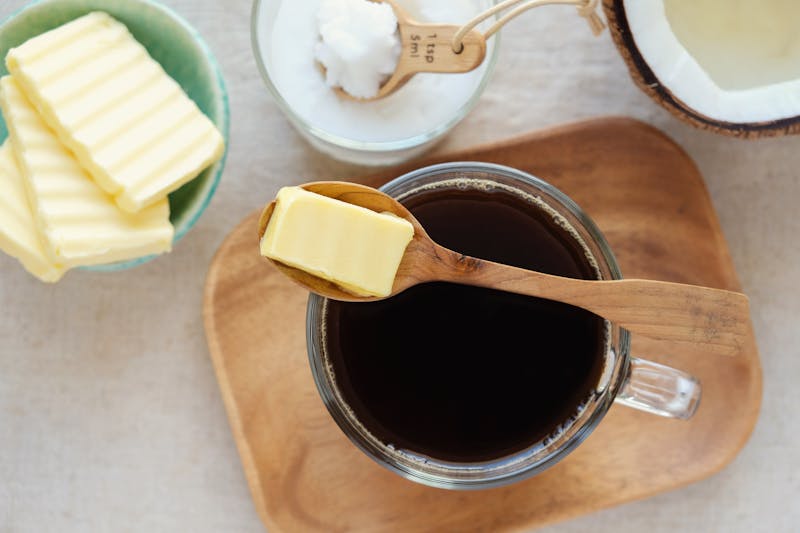



A considerable amount of evidence indicates that protein and fiber have a stronger effect on feelings of fullness than fat.17
As tasty as it is, dietary fat does not contribute much to the nutritional content of a meal. While we do require a few essential fatty acids, the amount we need on a daily basis is very low.
Additionally, fat has 9 calories per gram, more than twice that of protein or carbs, which have just 4 calories. This means fat contributes a lot of calories in a small amount of food.
Although fat does add to feelings of fullness by slowing down digestion and stimulating hormones that tell you to stop eating, these effects may not be as powerful as those from protein.18
Why you might eat less on low carb
This may seem to contradict the finding from clinical trials, where participants who are given low-carb diets typically end up eating fewer calories while reporting feeling more full.19 This phenomenon is often attributed to the fat content of those diets.
However, under these circumstances, the diet’s protein density also typically increases; participants eat more protein per calorie than they did before.20 This can be a powerful way to reduce overall calorie intake.
Furthermore, ketosis has been shown to reduce hunger.21But keeping carbs and calories low is the primary driver of ketosis, not eating extra fat.
In fact, in these studies, the absolute intake of fat seems to not increase by much (see the table above). Because carbs and total calories are greatly reduced, the percentage of calories from fat goes up, but the absolute amount of fat eaten may not change dramatically.22
Additionally, like most other diets, low-carb diets limit the sugary, starchy foods that stimulate overeating, such as desserts, chips, and cookies.
Avoiding these foods is also likely to shift the sources of dietary fat from carb-plus-fat foods (such as fried starchy or sweet foods, including donuts and potato chips) to protein-plus-fat foods (such as steak or chicken with its skin on) or fiber-plus-fat foods (such as broccoli with butter or a salad with full-fat dressing).
Protein and fiber reduce hunger best
If you’re trying to lose weight in a healthy, sustainable way, replacing sugary and starchy foods with foods that combine fat with protein or fiber may be more effective than replacing them with foods that are mostly fat, such as a mug of butter-enriched coffee.23
A ribeye steak or asparagus with Hollandaise sauce provides many of the essential nutrients you need. Foods such as these — definitely not “low-fat” foods — nourish your body, lower insulin levels, and reduce hunger — without leaving you feeling like you are eating “diet food.”
Fat combined with a sweet taste, even from a keto-friendly, non-caloric sweetener, can still promote hunger, override feelings of fullness, and make it easy to overeat empty calories.24
Can you still enjoy a slice of keto cheesecake? Of course. You just want to make sure you get the protein you need first, along with plenty of non-starchy vegetables. And for successful weight loss, keto-friendly desserts work better as an occasional treat than an everyday occurrence.
Remember, even with increased protein on a keto diet, 50 to 70% of your calories could still come from fat. To lose weight in a sustainable way, you don’t want to end up with a low-carb, low-fat, low-calorie diet that leads to hunger and cycles of weight loss and regain.
Limiting fat just enough to make sure you burn body fat is a smart move. Feeling deprived and hating the food you eat isn’t.
Summary
Protein foods and fiber-filled vegetables slow down digestion and prompt the release of hormones that signal fullness. And, they do it while providing the body with essential nutrients and less than half as many calories as fat.
Myth 4: If carbs are kept low, eating fat can’t cause weight gain and insulin resistance
Can you have too much fat on a keto diet? The overly simplistic answer is “yes,” but a better answer is, “It’s complicated.” Ultimately, we should be wary of treating dietary fat as a “free food” that can be eaten in unlimited quantities.
Just as the “carbs can’t make you fat” myth from the days of low-fat diets was mistaken, so is the idea that “fat can’t make you fat.” That fat can make you fat – even in the context of a low-carb diet – may seem foreign to the many individuals who lost dozens or even more than 100 pounds by reducing carbs and adding cream, butter, and olive oil to their meals, but it is possible.
Although dietary fat does not raise glucose and insulin levels in the short-term — in the way that carbohydrates do — the long-term effects of dietary fat on insulin and insulin resistance are unclear. Whether dietary fat can contribute to weight gain and insulin resistance in the context of a low-carb diet likely depends on a number of factors.
Fat can contribute to weight gain
One consideration is whether you are taking in more energy than you expend daily. It is still possible to take in too many calories even if those calories don’t come from carbohydrates. Your body still has to manage excess energy somehow. Excess energy over time contributes to insulin resistance and weight gain.
At least one study has shown that individuals on low-carb diets may benefit from having slightly higher levels of energy expenditure or calorie-burning during weight loss maintenance. Still, there is little evidence to indicate that this is due to increased dietary fat intake.25 In fact, adding fat bombs and butter-filled coffee to your diet can easily override this higher level of energy expenditure.
Another consideration is whether you are currently overweight or obese. If so, the underlying insulin resistance that seems to precede obesity may have already set your body up to have higher levels of insulin and higher levels of circulating free fatty acids. In this situation, dietary fat appears to stimulate some insulin production even when blood glucose levels are low.26
But won’t a low-carb diet help reverse insulin resistance? In many cases, that answer is “yes.”
Low carb can improve insulin resistance
There’s plenty of evidence that limiting dietary carbohydrates helps lower insulin levels in most people. Low insulin levels help to move fat out of the liver and pancreas, allowing those organs to function more effectively, which improves insulin resistance.27
When calorie intake doesn’t exceed your calorie needs, fat released from the liver and pancreas can be burned for fuel. When this fat is burned for fuel, ketone production increases because ketones are a by-product of the fat-burning process. And when fat in the liver and pancreas is reduced, insulin resistance improves.
This seems to be where the confusion about the role of dietary fat in reducing insulin resistance comes in. It is easy to mistake the outcome of this process — higher ketone levels — as the cause of reduced insulin resistance.
But increasing ketone levels — by increasing dietary fat — may not lead to improvements in insulin resistance if it means overshooting daily calorie needs. It isn’t the presence of ketones that helps reduce fat in the liver and pancreas; it’s lower levels of insulin.28
Summary
Over time, taking in more energy than you need from dietary fat can contribute to elevated insulin, insulin resistance, and weight gain, even when carbs are kept low.
Smart choices about dietary fat
For healthy weight loss and improved insulin resistance, choose foods that add nutrition, such as protein foods and fiber-filled vegetables, over adding empty calories from more fat than your body needs.
Because fat is energy-dense, a little goes a long way. It is easy to get too many calories from fat, especially when it is combined with a sweet taste — even if the sweet taste comes from non-caloric sweeteners or fruit.
This doesn’t mean you should eat a low-fat diet. On the contrary, you can enjoy fatty foods that are also high in protein (such as a rib-eye) or fiber (broccoli or cauliflower cooked in butter). Fat is important for flavor and energy. Use dietary fat to add enjoyment to your food and to add sufficient energy to keep hunger at bay.
Once you’ve given your body the nutrition it needs, whether you want to add additional calories from fat is up to you. For weight loss, add enough fat to make meals enjoyable and keep your calories from going too low, keeping in mind that a little fat goes a long way.
Start your FREE 30-day trial!
Get instant access to healthy low-carb and keto meal plans, fast and easy recipes, weight loss advice from medical experts, and so much more. A healthier life starts now with your free trial!
Start FREE trial!Learn more about ketosis
Debunking keto myths about fat and weight loss - the evidence
This guide is written by Adele Hite, RD and was last updated on June 17, 2022. It was medically reviewed by Dr. Bret Scher, MD on April 29, 2021.
The guide contains scientific references. You can find these in the notes throughout the text, and click the links to read the peer-reviewed scientific papers. When appropriate we include a grading of the strength of the evidence, with a link to our policy on this. Our evidence-based guides are updated at least once per year to reflect and reference the latest science on the topic.
All our evidence-based health guides are written or reviewed by medical doctors who are experts on the topic. To stay unbiased we show no ads, sell no physical products, and take no money from the industry. We're fully funded by the people, via an optional membership. Most information at Diet Doctor is free forever.
Read more about our policies and work with evidence-based guides, nutritional controversies, our editorial team, and our medical review board.
Should you find any inaccuracy in this guide, please email andreas@dietdoctor.com.
As an example, if someone is eating 40% fat with 2,000 calories per day, that is 88 grams of fat. If they reduce their calories to 1,400 per day on a 60% fat diet, that is 93 grams of fat. It’s essentially the same amount of fat for either diet. ↩
This is based on the consistent clinical experience of practitioners familiar with low-carb nutrition. [weak evidence] ↩
Clinical Biochemist Reviews 2005: Insulin and insulin resistance [overview article; ungraded] ↩
Diabetes Care 1991: Plasma glucose and insulin response to macronutrients in nondiabetic and NIDDM subjects[overview article; ungraded] ↩
In fact, dietary fat has long been blamed for making insulin resistance worse. A number of studies have shown that a low-fat diet can improve insulin sensitivity compared to a high-fat diet, even when body weight is held stable (meaning weight loss is not the explanation for improved insulin sensitivity). Yet, other studies fail to find that high-fat diets negatively affect insulin sensitivity.
Current Diabetes Reports 2002: The influence of dietary fat on insulin resistance [overview article; ungraded]
↩The following study, which reduced intake of highly processed foods in both diets tested, shows that a low-carb and a low-fat diet can both result in lower insulin production in response to a glucose challenge.
Journal of the American Medical Association 2018: Effect of low-fat vs low-carbohydrate diet on 12-month weight loss in overweight adults and the association with genotype pattern or insulin secretion: The DIETFITS randomized clinical trial [randomized trial; moderate evidence]
In contrast, other studies have shown that diets that are better at reducing insulin levels were also better at improving weight loss — for a specific population of individuals who were insulin resistant.
Nutrition Reviews 2006: Dietary composition and weight loss: can we individualize dietary prescriptions according to insulin sensitivity or secretion status? [overview article; ungraded]
Obesity Research 2005: Insulin sensitivity determines the effectiveness of dietary macronutrient composition on weight loss in obese women [randomized trial; moderate evidence]
↩We don’t always know why low-calorie diets fail to help people lose weight, especially over the long term. When calories are reduced in general, the result is lower intakes of all three macronutrients, but not equally. Often, as in the following study, limiting calories and fat ends up limiting protein as well, while carbohydrate intake is reduced very little.
In this study, both the intervention and control group reduced their calorie intake, but at the end of the study, neither group lost a significant amount of weight compared to baseline.
Journal of the American Medical Association: Low-fat dietary pattern and weight change over 7 years: The women’s health initiative dietary modification trial [randomized trial; moderate evidence]
We know that dietary carbohydrates provoke the strongest rise in insulin, compared to protein or fat. As a result, we can speculate that the amount of carbohydrate that remains in a low-calorie diet does not allow insulin to be lowered enough to help the body burn fat effectively. However, we don’t have a definitive answer.
We have seen that, at the same calorie level, diets that reduce carbohydrates along with calories can result in increased weight loss in the short term.
Nutrition and Metabolism (London) 2004: Comparison of energy-restricted very low-carbohydrate and low-fat diets on weight loss and body composition in overweight men and women [randomized trial; moderate evidence]
Because evidence suggests that insulin resistance may precede obesity, diets that fail to lower insulin levels and improve insulin resistance may be less effective for weight loss.
JAMA Network Open 2021: Temporal associations among body mass index, fasting insulin, and systemic inflammation: A systematic review and meta-analysis[very weak evidence]
↩This is based on the consistent clinical experience of practitioners familiar with low-carb nutrition. [weak evidence] ↩
PLoS One 2015: Dietary intervention for overweight and obese adults: Comparison of low-carbohydrate and low-fat diets. A meta-analysis [strong evidence] Learn more
The British Journal of Nutrition 2016: Effects of low-carbohydrate diets v. low-fat diets on body weight and cardiovascular risk factors: a meta-analysis of randomised controlled trials [strong evidence] Learn more
↩Nutrition and Metabolism 2006: Comparison of isocaloric very low carbohydrate/high saturated fat and high carbohydrate/low saturated fat diets on body composition and cardiovascular risk [randomized controlled trial; moderate evidence]
↩New England Journal of Medicine 2008: Weight loss with a low-carbohydrate, Mediterranean, or low-fat diet [moderate evidence]
Journal of the American Medical Association 2007: Comparison of the Atkins, Zone, Ornish, and LEARN diets for change in weight and related risk factors among overweight premenopausal women. The A to Z weight loss study: a randomized trial [moderate evidence]
↩American Journal of Clinical Nutrition 2008: Protein, weight management, and satiety
[overview article; ungraded]American Journal of Clinical Nutrition 2005: A high-protein diet induces sustained reductions in appetite, ad libitum caloric intake, and body weight despite compensatory changes in diurnal plasma leptin and ghrelin concentrations
[nonrandomized study, weak evidence] ↩Fat has nine calories per gram whereas carbs and protein have four calories per gram. ↩
This is based on the consistent clinical experience of practitioners familiar with low-carb nutrition. [weak evidence] ↩
This is based on the consistent clinical experience of practitioners familiar with low-carb nutrition. [weak evidence] ↩
This is based on the consistent clinical experience of practitioners familiar with low-carb nutrition. [weak evidence] ↩
European Journal of Clinical Nutrition 2018: Dietary fat, fibre, satiation, and satiety—a systematic review of acute studies [systematic review of randomized trials; strong evidence]
American Journal of Clinical Nutrition 2008: Protein, weight management, and satiety [overview article; ungraded]
↩Annals of the New York Academy of Sciences 1997: Passive overconsumption. Fat intake and short-term energy balance [overview article; ungraded]
Nutrition Journal 2014: Effects of high-protein vs. high- fat snacks on appetite control, satiety, and eating initiation in healthy women [randomized trial; moderate evidence]
↩Annals of Internal Medicine 2005: Effect of a low-carbohydrate diet on appetite, blood glucose levels, and insulin resistance in obese patients with type 2 diabetes [randomized trial; moderate evidence]
↩Twenty RCTs showed weight loss and blood sugar benefits from a low-carb diet compared to a low-fat diet. However, 16 of these also significantly increased the protein content in the low-carb diet. ↩
Obesity Review 2015: Do ketogenic diets really suppress appetite? A systematic review and meta-analysis [systematic review of randomized trials; strong evidence]
↩As an example, if someone is eating 40% fat with 2000 calories per day, that is 88 grams of fat. If they reduce their calories to 1400 per day on a 60% fat diet, that is 93 grams of fat — essentially the same. ↩
British Journal of Nutrition 2012: Dietary protein – its role in satiety, energetics, weight loss and health [overview article; ungraded]
↩Fat Detection: Taste, texture, and post ingestive effects: 2010 [overview article; ungraded]
↩In this randomized clinical trial, the investigators found that, after a period of weight loss, daily total energy expenditure was about 300 calories per day greater with a low-carb diet compared to a low-fat diet. However, the study indicates that the reason for this difference is unknown.
Journal of the American Medical Association 2012: Effects of dietary composition
on energy expenditure during weight-loss maintenance [randomized trial; moderate evidence]
↩Nutrition & Metabolism 2016: Fatty acids stimulate insulin secretion from human pancreatic islets at fasting glucose concentrations via mitochondria-dependent and -independent mechanisms[very weak evidence]
↩Cell Metabolism 2018: An Integrated Understanding of the Rapid Metabolic Benefits of a Carbohydrate-Restricted Diet on Hepatic Steatosis in Humans [non-controlled study; weak evidence]
↩We are not aware of any evidence demonstrating that ketone levels, in and of themselves, stimulate weight loss or insulin sensitivity. Rather, it appears the calorie reduction, carbohydrate reduction, and weight loss contribute most to insulin sensitivity
Nutrition & Diabetes 2017: Enhanced insulin sensitivity in successful, long-term weight loss maintainers compared with matched controls with no weight loss history [case control study; weak evidence]
Journal of the American College of Nutrition 2013: Improvements in glucose metabolism and insulin sensitivity with a low-carbohydrate diet in obese patients with type 2 diabetes [uncontrolled study; weak evidence]
↩
